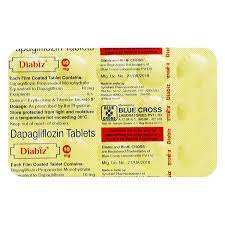Fampridine 10 is used in adult patients living with multiple sclerosis to improve walking. It belongs to a group of medicines called potassium channel blockers. They work by stopping potassium leaving the nerve cells which have been damaged by multiple sclerosis. This medicine is thought to work by letting signals pass down the nerve more normally, allowing people to walk better.
THE EDSS
?
Therapeutic Fields?
?
improvement in walking-related activities
Fampridine-ER may also improve other clinical symptoms of MS such as:
Fatigue
Optic Neuritis
Nystagmus:
Episodic ataxia:
Lambert-Eaton myasthenic syndrome
Dosing and Adminstration
The recommended dose is one 10 mg tablet, twice daily.
maximum daily dose: 20 mg.
The tablets should be taken without food.
Missed Dose:
The usual dosing regimen should always be followed. A double dose should not be taken if a dose is missed.
Patients with renal impairement:
Mild renal imparement (CrCl 51-80 ml/min): no dose adjustment needed; however, use with extreme caution as risk of seizure may be increased secondary to reduced clearance.
Moderate-to-severe renal impairement: (CrCl? 50 ml/min): use is contraindicated.
Patients with hepatic impairment
No dose adjustment is required; drug undergoes minimal metabolism and is primarily excreted unchanged in the urine.
Paediatric population:
The safety and efficacy of Fampridine in children aged under 18 have not been established. No data are available.
Pregnancy category: C
breast feeding:
It is unknown whether fampridine is excreted in human or animal milk. Fampridine is not recommended during breastfeeding.
Warnings/Precautions
Hypersensitivity to fampridine or to any of the excipients.
Concurrent treatment with other medicinal products containing fampridine (4-aminopyridine).
Patients with prior history or current presentation of seizure.
Patients with moderate or severe renal impairment (creatinine clearance <50 ml/min).
Concomitant use of Fampyra with medicinal products that are inhibitors of Organic Cation Transporter 2 (OCT2) for example, cimetidine.
Side Effects
Adverse reactions identified include urinary tract infection, seizure, insomnia, anxiety, balance disorder, dizziness,paraesthesia, tremor, headache and asthenia.












 No products in the cart.
No products in the cart. 
Reviews
There are no reviews yet.